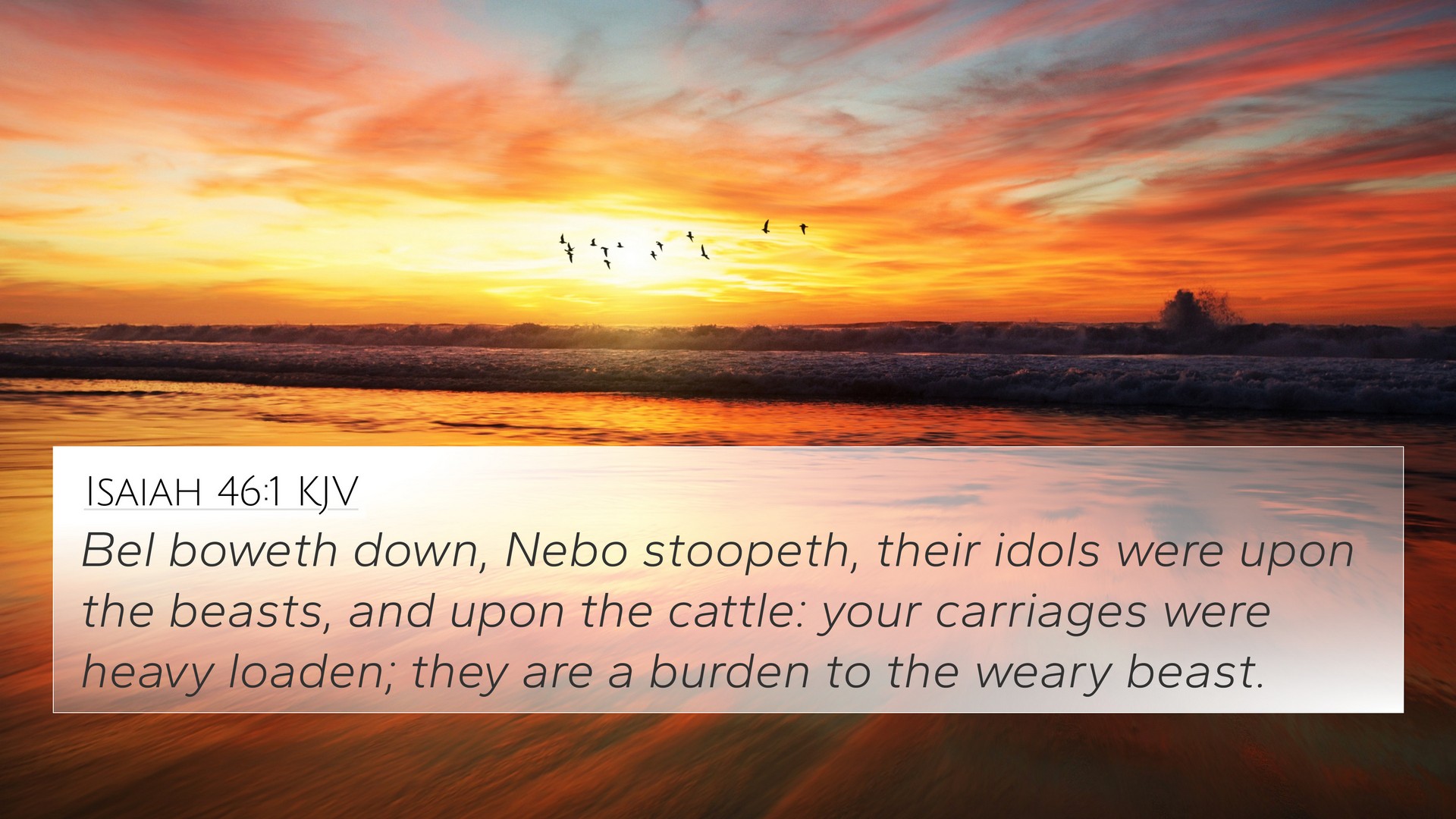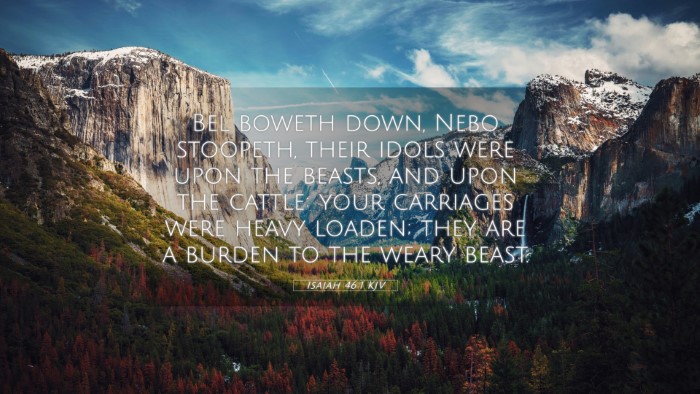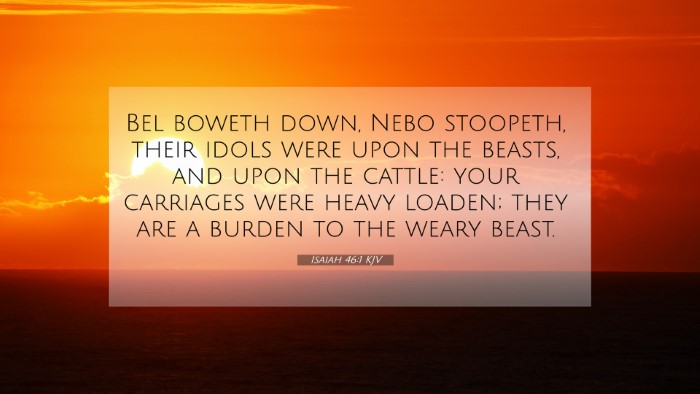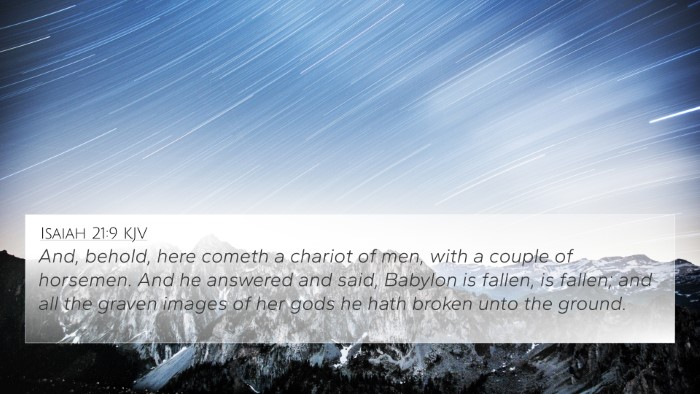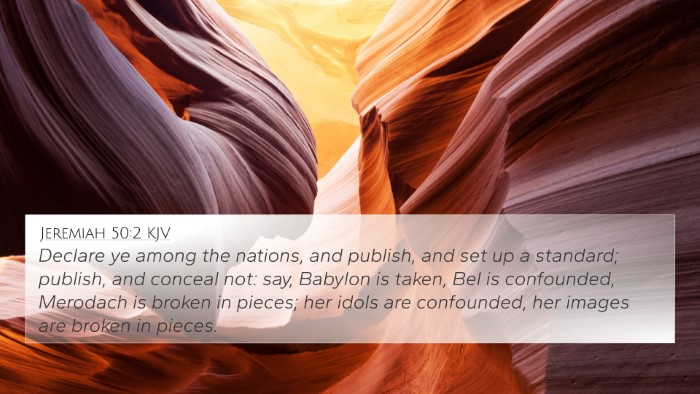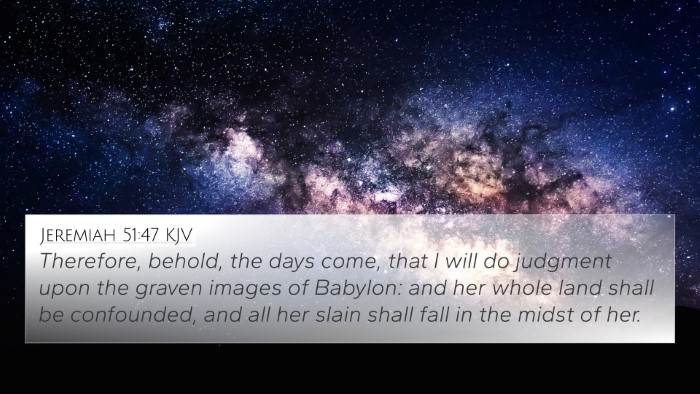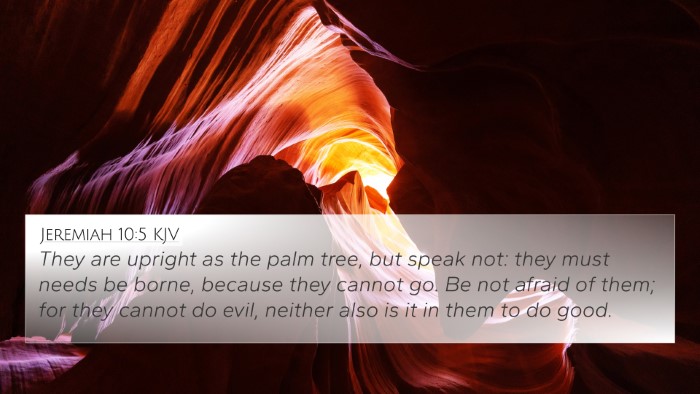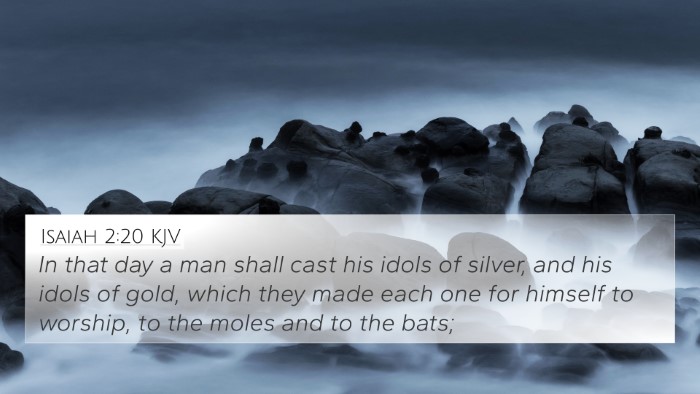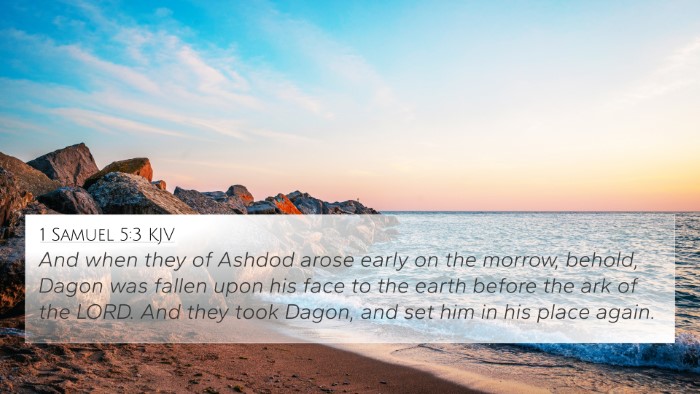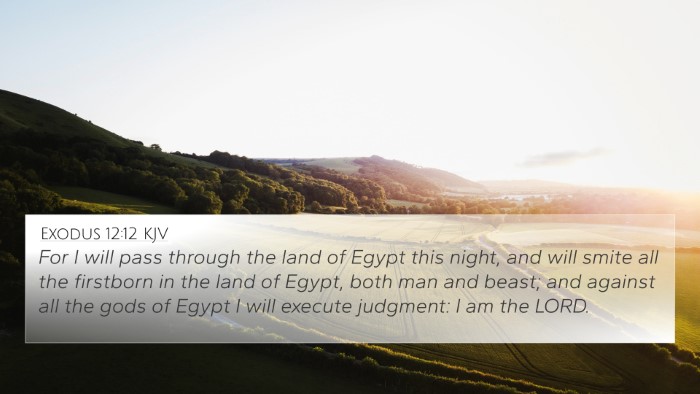Understanding Isaiah 46:1
Isaiah 46:1 states, "Bel bows down, Nebo stoops; their idols were on the beasts and on the cattle; your carriages were heavily loaded, a burden to the weary beast." This verse speaks profoundly about the futility of idol worship and the burden borne by false gods.
Contextual Overview
The prophecy of Isaiah is renowned for its powerful assertions regarding God’s sovereignty, particularly over idols. In this passage, the prophet contrasts the true God with false deities, represented by the Babylonian idols, Bel and Nebo. These idols, rather than being mighty, are depicted as burdensome, reflecting their inability to assist their worshippers.
Insights from Public Domain Commentaries
- Matthew Henry: He emphasizes that though Bel and Nebo were thought to be powerful, they were mere products of human creation, incapable of aiding those who worship them. He highlights how these idols could not save themselves, let alone their worshippers.
- Albert Barnes: Barnes notes that this verse illustrates the degradation of these idols. They required transport and care, and thus highlighted the absurdity of relying on them. He draws a vivid picture of how these once-regarded deities are reduced to burdens for beasts of burden.
- Adam Clarke: Clarke points out that the depiction of idols being carried on beasts symbolizes the inherent weakness of paganism. He suggests that the imagery serves to remind the Israelites of the futility of turning to idols instead of relying on the Sovereign Lord.
Thematic Biblical Connections
This passage aligns with numerous other Scriptures that elaborate on the theme of the impotence of idols. Below are inter-Biblical dialogues demonstrating these connections:
- Psalm 115:4-8: This psalm echoes similar sentiments, depicting idols as having mouths, ears, and eyes but being unable to speak, hear, or see—akin to the burdensome nature described in Isaiah.
- Jeremiah 10:5: Here, the prophet speaks about how idols are like scarecrows in a cucumber field; they cannot walk and must be carried, reinforcing the theme of heaviness and reliance.
- Isaiah 40:20: This reinforces the idea that these idols denote human effort rather than divine power, thus creating a stark contrast to the majesty of the Creator.
- 1 Corinthians 8:4: The New Testament reiterates that idols are nothing in the world, highlighting a theological continuity from the Old Testament imagery of futility to early Christian understanding.
- Isaiah 42:17: This verse shows the ultimate fate of those who trust in idols, depicting that they will be turned back and utterly ashamed—illustrating the negative consequences of idolatry.
- Habakkuk 2:18-19: Through these verses, the futility of trusting in idols is emphasized, where the focus remains on their inability to provide genuine help or revelation.
- Romans 1:22-23: The transformation of truth into a lie is vividly discussed, correlating the rejection of God for idols and the resulting consequence of spiritual blindness.
Practical Applications and Reflections
Isaiah 46:1 challenges believers today to ponder where they place their faith and trust. In a modern context, this may extend to items or concepts that we prioritize above God. The connection of this verse to others encourages believers to engage in cross-referencing Biblical texts as a method of deepening their understanding and commitment.
Tools for Bible Cross-Referencing
To better grasp the concepts within this verse and its interconnections, various tools are available:
- Bible Concordance: Useful for finding specific words or themes across Scripture.
- Bible Cross-Reference Guide: A transient tool that allows readers to explore similar verses.
- Cross-Reference Bible Study: A methodical approach to studying the Bible that encourages examination of connected verses.
Conclusion
In conclusion, Isaiah 46:1 provides a robust teaching about divine sovereignty in contrast to human-made idols. By utilizing cross-referencing tools and practices, believers are empowered to internalize the lessons of Scripture more profoundly, recognizing the enduring message of reliance on God rather than on the burdens of idolatry.
